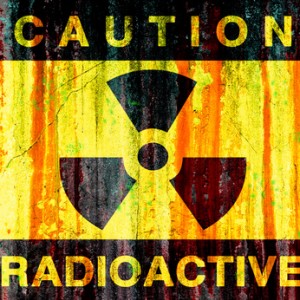The controversial plan to build a new nuclear power station at Hinkley Point in Somerset has now received permission from the EU. David Kingman reports on what this means for the scheme
The plan to build a new nuclear power plant at Hinkley Point in Somerset – the first to be built in Britain for a generation – has recently moved a step closer to fruition following a ruling from the European Union that the project doesn’t breach EU limits on the amount of state aid that can be given to private companies.
A “world record sell-out”?
The decision, which was handed down by the EU Competition Commissioner, Joaquin Almunia, also revealed for the first time the projected total cost of the scheme: £24.5 billion, according to the Daily Telegraph.
This figure is much higher than the £16 billion which has previously been cited by the developer, EDF Energy, as it includes the interest that will be paid during the construction phase of the project (which is expected to take as long as 10 years). The new figure is in nominal terms, whereas the older one was in 2012 prices.
The scheme has been dogged by controversy over its total cost to British taxpayers, who, critics argue, are being forced to subsidise an expensive form of electricity generation at artificially high prices. The deal which has been agreed between EDF and the government will result in the power company receiving a guaranteed price of £92.50 per megawatt-hour of electricity throughout the contract’s 35 year period. This is twice the current wholesale price of electricity, and it will still have to be paid even if alternative forms of energy provision – such as wind, solar or gas – become significantly cheaper.
The EU had raised concerns that guaranteeing EDF such a large subsidy amounts to a breach of EU rules on state aid for private companies. The deal was only approved after EDF agreed to change the terms of the agreement, although the precise details remain unclear (it appears to involve modifications to the terms of a loan guarantee being provided by the British state, as well as enhanced powers to claw back larger profits from EDF in future if they do better than the deal envisages).
Even with these changes to the agreement, the EU Competition Commission only passed the decision to allow Hinkley Point to go ahead by a majority decision, with 16 commissioners voting in favour and 5 against.
Among the critics of the EU’s ruling was Greenpeace, who claimed it was a “world record sell-out” to the nuclear industry. Greenpeace EU legal advisor Andrea Carta gave the following quote to The Guardian:
“It’s such a distortion of competition rules that the Commission has left itself exposed to legal challenges. There is absolutely no legal, moral or environmental justification in turning taxes into guaranteed profits for a nuclear power company whose only legacy will be a pile of radioactive waste. This is a bad plan for everyone except EDF.”
Will future generations thank us?
This looks like a bad deal from the point of view of future generations for several reasons. Firstly, the long-term nature of the contract the government has signed with EDF means they are committed to funding these subsidies for the next 35 years, regardless of what else happens to energy policy or the economy in that time span.
Secondly, it’s worth remembering that the environmental credentials of nuclear energy remain controversial. Proponents of the scheme point out that once Hinkley Point is up and running it should be able to generate about 7% of the UK’s total energy needs, potentially saving about 9 million tonnes of carbon dioxide emissions from fossil fuels each year. Against that, it will generate large quantities of radioactive waste which will require storage for thousands of years, and there is the risk of nuclear accidents.
Many environmental groups, who oppose fossil fuels, are against nuclear power in principle. They ask a good question: why are we spending so much money on nuclear fuel when it would be cheaper to invest in renewable energy instead? As Friends of the Earth said in their official response to the EU’s announcement:
“This shocking decision will funnel billions of pounds of public money into the hands of EdF, and add to the mountain of nuclear waste that countless future generations will struggle to deal with…Scarce public funds should be targeted at clean technologies like wind and solar, whose costs are rapidly falling, rather than trying to breathe new life into the failing nuclear experiment – which remains extremely expensive after six decades of operation.”
